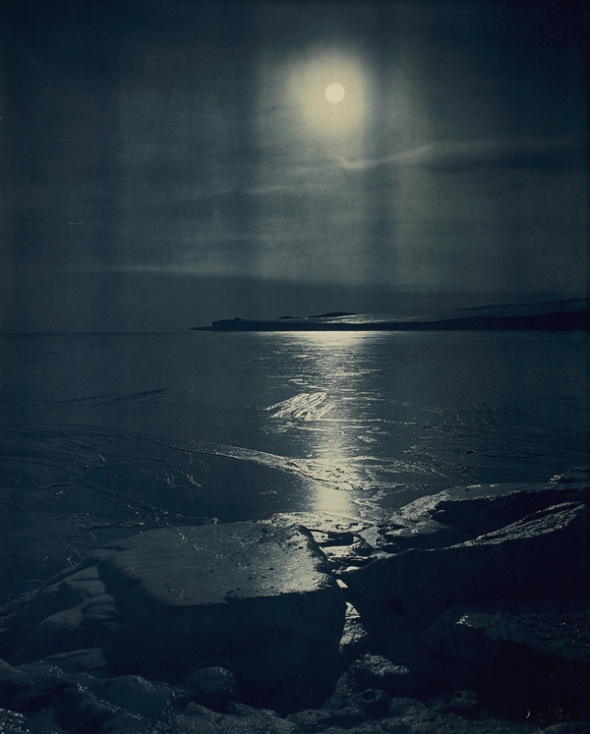Love, something that bewilders many. The task of explaining this mysterious feeling has often been left aside for poets, play-writers, or movie-makers to deal with. Nonetheless, it has managed to stretch far enough to occupy a place not only in the philosopher’s mind, but also in the scientist’s lab.
In Romeo and Juliet, Shakespeare writes…
Love is a smoke rais’d with the fume of sighs;
Being purg’d, a fire sparkling in a lover’s eyes;
Being vex’d, a sea nourish’d with lovers’ tears:
What is it else? a madness most discreet,
A choking gall and a preserving sweet.
Love is compared with smoke. If one is ever in love, one is bound to sigh for happiness — sighs that are fueled by utter contentment and pure joy; or for grief — sighs fueled by a broken heart. Love is there, the smoke is inevitable — whether it works or not is the matter of the nature of those sighs. How beautiful is that?
Some argue that explaining love or classifying it takes away its lure and magic. John Lee surely did not shy away from doing exactly that. Colors and Love? It makes Love sound like just another thing you can touch or see. Lee uses the analogy of the color wheel. He proposed three primary styles (colors) of love: eros, ludos, and storge, and three secondary styles of love which correspond, in theory, to the combinations of primary colors: mania, pragma, and agape. For example, you could possess Eros — Love for an ideal person, Ludos — Love as a game, or Mania — loving someone obsessively, a combination of Eros and Ludos.
Science and Art alike attempted to know what love is, how one can talk of love, and what one can do with love.
But seriously, let’s face it. Chances are, you’re not going to read The Colors of Love (1973), watch The Notebook (2004) or listen to Darren Hayes’ Insatiable (2002) to verify whether what you feel is really truly platonic love. Quite to the contrary, actually, you would rather deceive yourself into believing that your emotions are beyond description — things that are not only too awful for words, but also beyond normal human realization and are solely confined to you and your lover. Outlandishly special.
Until that day comes, you are bound to the wonder of your own mind and the limits of your unaided imagination, to attempt to think, feel, or predict the nature of love. That is, of course, if you’re curious about it. If not, then you are welcome to stop reading now.
Belonging to those driven by curiosity — and hoping that it is the right and natural kind of curiosity — I, like many other poets, philosophers, and scientists, have my theory of love. Simply put…
I love you, because
I see myself in you,
You reflect me,
and I love me.
Before you go ahead and complain about how self-centered my claim sounds, please allow me to state the following:
This is an attempt to explain the loveness of love — a possible essential component of what we come to call true love — ideal love. Needless to say, people fall in love for different reasons: some for admiration, some for sympathy, and yet others as a result of an illness. I do not attempt to explain any of that — I attempt to, strictly speaking, propose the conceptual, and rather unconscious, underpinnings of true love. It is likely that the premises I mentioned above apply to many, but the selfishness of the notion it revolves around, that is, I love me, triggers anxiety and emotional negativity, and is therefore repressed (yes, talking from a Freudian point of view). Instead, love is commonly thought of, put vaguely but simply, as an admiration of another person for his or her qualities independent of oneself’s.
It is not how I see it.
I’m sure many would agree to the common “You attract what you are,” the mere “I recognize myself in you,” and the hit song “It’s like you’re my mirror, my mirror’s staring back at me.” An extension to the above notion, and crucial to my theory of love, is bold narcissism, hence the name Narcissistic Theory of Love, should it become recognized and integrated to the body of knowledge.
The idea resonates with other cocky claims, and is therefore frowned upon and brutally rejected by many, but I could care less for opinions. If you were not able as of yet to think it through and sense some truth in it, I would like to invite you to examine your very own words, thoughts, gestures, and emotions, through which you are likely to confess that the Narcissistic Theory of Love can explain the phenomenon of true love, and is therefore not merely just another fancy label.
First. Think mirror. What do you do with a mirror? I’m guessing you check yourself out. Your beautiful physical features, tiny little flaws here and there. Mirrors don’t lie. They reflect exactly what you look like. The question is, why are we interested in this reflection? Quite simply, we are striving to attain an ideal image. An image that is likely to make us feel good, an image that we believe will truly reflect our own ideal. That is why we stare and modify the little details.
One day, you will stand in front of your mirror, and for the first time, there will be nothing to change. You would lean back and forth, but there is no need for make up, no need for jewelry, no need for a fancy shirt, no need for anything. You would have, then, perfected your own ideal image.
Okay, back to Love. You. Another person. In love. What does that mean? A mirror talking back at you, letting you know that maybe you are right: you have perfected your own ideal, and that your own ideal is not only accepted by someone else, but also, more importantly is manifested in someone else. Unlike a mirror, which reflects physical attractiveness, that “someone else” is reflecting something beyond our physique… that someone else is reflecting our minds, our thoughts, our likes, our dislikes, our morals, our flaws, our everything.
You and that person don’t only have so much in common, you alsoadmire what you have in common. You are not both funny, you admire a sense of humor. You are not both smart, you admire intelligence. And that is why you have cultivated those qualities in yourself, the other person did so too.
If you are dishonest and untrustworthy, chances are, you are also likely to find “someone else” who is just like you, who reflects you. But you are only likely to fall in love with them if you happen to admire those qualities. To be brutally honest, only a brain-washed, insane person would fall in love like that.
Your ideal self — what you have always admired and longed for — you have attained. Love is an extension of that attainment. Love is having someone else who shares your ideals, who shares your love for those ideals, who shares your love for what you have attained, who shares your love for yourself.
Now what does all this have to do with a pinch of narcissism? Narcissism, in my mind, is a noble quality when it is attained in the right kind of way — which prompts me to think that we should attempt to develop is definition. Loving oneself for having perfected one’s ideals is a noble form of narcissism — narcissism that is justified. You fall in love with yourself before falling in love with anyone else. Having attained your idea self, you’ll find yourself truly loving what you are. You would come to the realization that you have found the pure, ideal essence of what you are, not the polluted, fragile, broken thing you used to be. Your ideal self is the self worthy of someone else’s precious love.
I believe Narcissism is there, but we don’t admit it, mostly due to the meaning attached to the word.
So yeah…
I don’t love you because you reflect me, I love you because you reflect the ideals that I have achieved and the ideals I am hoping to achieve.
Love is needed to keep up with your ideal self (the ME part of ‘I love me’ in the fourth premise). Love is needed to remind you of the good person you are. You might lose yourself sometimes, but you’ll always have someone by your side who could put you back on track again, whom you could equally help get back on track again.
The task is, then, to cultivate your ideal self first, and then find it.
Love isn’t just about a reflection. Love is about admiring the reflection, love is about loving the reflection, love is aboutsustaining and transcending the reflection…
So that every time you look in the mirror, you would say, without much contemplation or second thoughts, “we are beautiful.”

